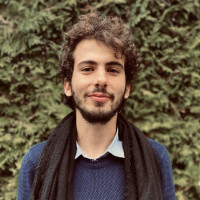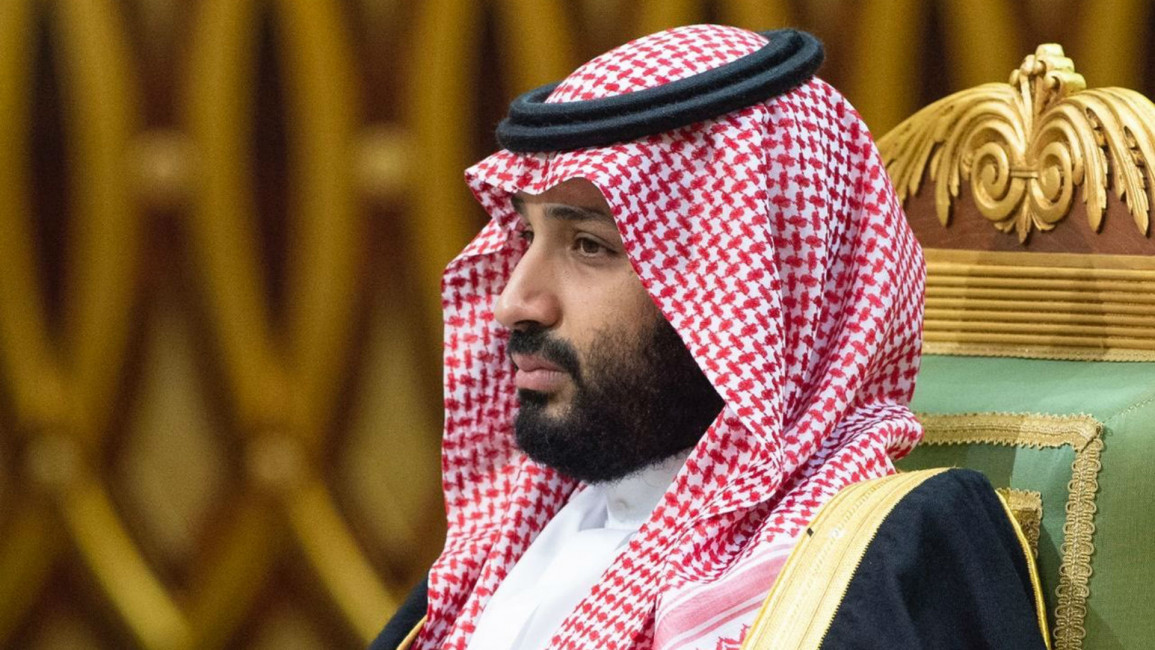
5 years of MBS: The transformation of Saudi’s state security
While multiple state leaders, including US President Joe Biden, had vowed to isolate Saudi Crown Prince Mohammed bin Salman (MBS), given his direct involvement in the murder of Saudi journalist Jamal Khashoggi, today, five years since he came into power, the Crown Prince seems to no longer be a “Pariah.”
Indeed, MBS’s isolation is coming to an end. He is set to meet Biden in mid-July, just months after visits from British PM Boris Johnson and Turkish President Recep Tayyip Erdogan, in addition to French President Emmanuel Macron late last year. This ongoing rapprochement with MBS, however, will only embolden the crown prince and the repressive state security transformations he has ushered in since the beginning of his reign.
A new report published today by MENA Rights Group, a Geneva-based legal advocacy organisation, reveals the extent to which MBS has fundamentally shifted the methods and scope of repression in Saudi Arabia since 2017. While MBS’ despotic tactics have long been known, lesser light has been shed on the state institutions acting as the enforcer of his repressive policies.
MENA Rights group’s report uncovers the legal and security developments implemented throughout MBS’ reign, which have allowed him to usher in a complete overhaul of the Kingdom’s state security apparatus.
''While over the past five years, MBS has tried to carefully construct an image of himself as a liberal reformer, inside Saudi Arabia he has targeted anyone who has dared criticise him or his policies.''
Saudi Arabia has consequently turned into a surveillance state whereby activists, critics and ordinary citizens are systematically subjected to patterns of enforced disappearance, brutal torture methods and arbitrary detention.
The enactment of a new draconian counterterrorism law in November 2017, effectively criminalising and severely punishing any semblance of dissent, further provided state security forces with the legal cover to target any of MBS’ critics and subject them to gross violations of human rights.
The group’s report, titled The Saudi Presidency of State Security: An Arm of Repression in the Crown Prince’s Kingdom shows that “nearly all human rights abuses committed over the past years in Saudi Arabia, ranging from enforced disappearances, torture, and arbitrary detention, can be traced back” to one particular security agency: the Presidency of State Security (SSP).
The SSP was established by royal decree just one month after MBS became crown prince, effectively allowing him to consolidate the Kingdom’s security apparatus under one centralised body that is subject to the direct authority of the royal palace.
The decree removed various security bodies, including the General Investigative Directorate (the notorious Saudi secret police known as Al Mabahith), the Special Security Forces, the Special Emergency Forces and the National Information Centre, from under the authority of the Ministry of Interior and placed them under the authority of the newly formed SSP.
At the head of the SSP is Abdulaziz al-Huwairini, the former head of Al Mabahith who had worked under deposed crown prince Mohammed bin Nayef, before being promoted to lead the new state security agency after MBS took over. Al-Huwairini himself may have been involved in the plans to murder Jamal Khashoggi.
In her investigative report on this issue, the former UN Special Rapporteur on Extrajudicial Killings, Agnès Callamard, noted a recorded phone conversation between the Saudi Consul General in Istanbul and an unnamed Saudi official, where the official can be heard saying: “the head of state security called me and they have an assignment.” The phone conversation took place the day that Khashoggi first visited the embassy in late-September 2018.
Since its establishment, moreover, the SSP has been responsible for brutally torturing and forcibly disappearing Saudi journalists, academics and opposition activists, most of whom remain arbitrarily detained till this day.
The SSP, however, does not operate in a vacuum but acts in close collaboration with other state institutions, such as the Public Prosecution Office and the Specialized Criminal Court (SCC). The Public Prosecution Office (PPO), established just four days before MBS came to power, is “directly linked to the king’ and ‘no one may interfere with its work,’ according to its founding decree. On its part, the SCC is neither an independent nor an impartial court, as the Royal Palace controls the Supreme Judicial Council, which in turn appoints the SCC’s judges.
Looking forward to moderating this panel discussion with @aalodah @LinaAlhathloul and @bintbattuta87 on state security and human rights in #SaudiArabia.
— Ramzi Kaiss / رمزي قيس (@kaiss_ramzi) June 15, 2022
Tune in next Tuesday at 5pm (Central European Time)!
The panel discussion will be streamed via @MENA_Rights’s twitter page. pic.twitter.com/q3b1mgsGaf
MENA Rights Group’s report further outlines the SSP’s modus operandi, including its systematic methods of operation and collaboration with state bodies to silence and punish any form of dissent. Mabahith agents, operating under the orders and authority of the SSP, typically abduct individuals from their homes, without providing a warrant, before transporting them to secret detention facilities, run by the SSP, where they are forcibly disappeared and tortured as a way of extracting self-incriminating confessions.
Those arrested typically only reappear several months later before the PPO, where they are charged with terrorism, or other security-related, offences. The PPO then uses the torture-tainted confessions extracted by the SSP, in trials before the SCC. Individuals brought before the court are sentenced to long prison sentences, often on the sole basis of these coerced confessions.
Even after they are sentenced, detainees are subjected to torture and other forms of ill-treatment in prison, particularly in facilities run by the SSP.
While over the past five years, MBS has tried to carefully construct an image of himself as a liberal reformer, inside Saudi Arabia he has targeted anyone who has dared criticise him or his policies. Accountability thus remains far out of reach, particularly since the architect of both Khashoggi’s murder and the aforementioned state security transformations is the Kingdom’s future king,
As state leaders, particularly in the West, remain eager to find remedies to rising oil prices caused by the war in Ukraine, they would be well advised not to forget MBS’ catastrophic human rights record. Lower gas prices must not come at the cost of stronger authoritarian regimes in the Middle East.
Ramzi Kaiss is a Legal and Policy Officer at MENA Rights Group. He completed his MAS in transitional justice, human rights and the rule of law at the Geneva Academy of International Humanitarian Law and Human Rights.
Follow him on Twitter: @kaiss_ramzi
Have questions or comments? Email us at: editorial-english@alaraby.co.uk
Opinions expressed here are the author's own, and do not necessarily reflect those of their employer, or of The New Arab and its editorial board or staff.


